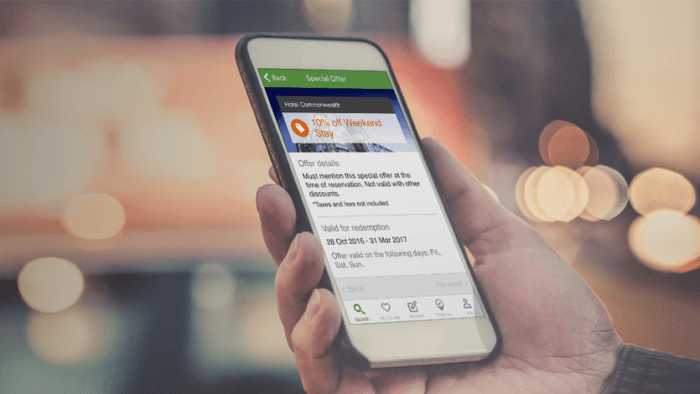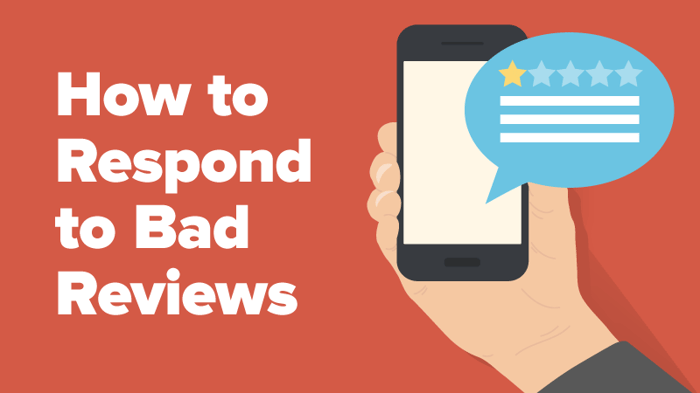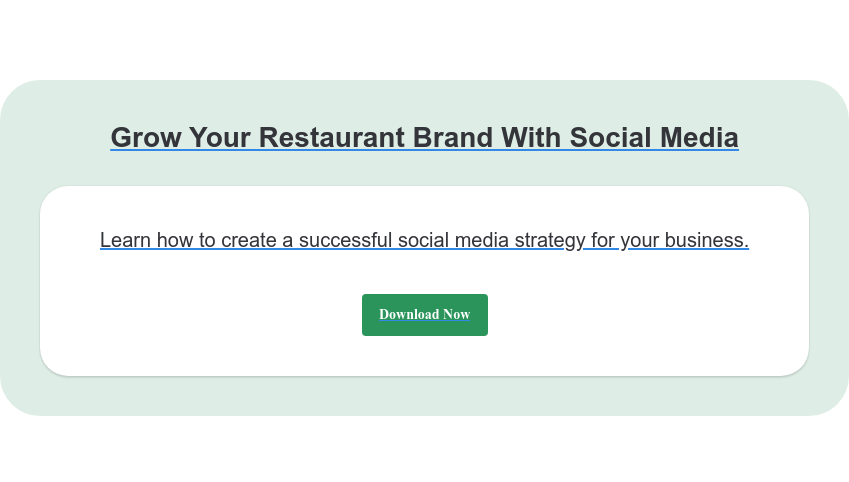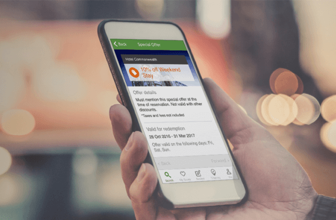Looking for the best review sites for restaurants?
In 2026, knowing where to list your restaurant online can boost your visibility and attract more customers. This article reveals the top platforms.
Key Takeaways
-
Restaurant review sites are crucial for online visibility, influencing 94% of US diners’ choices and significantly impacting revenue.
-
The top review platforms, including Google My Business, Yelp, and TripAdvisor, each offer unique features that can enhance a restaurant’s online presence and attract diverse customers.
-
Actively managing online reviews and engaging with customers fosters loyalty and improves overall satisfaction, which is essential for maintaining a positive reputation in the competitive restaurant industry.
Understanding restaurant review sites

If you’re running a restaurant, review sites are your secret weapon. They don’t just bring in diners; they can seriously boost your revenue by making your place more visible and helping people decide where to eat.
Here’s the kicker: 94% of US diners check online reviews before choosing a restaurant.
Good reviews and high ratings are like gold. They make your spot stand out and give people a reason to choose you over the competition. Think of it as digital word-of-mouth; customers trust reviews way more than ads. Plus, folks love checking out photos of your food and your menu before they commit. It’s all part of how they figure out if your place is worth the visit.
But here’s the thing: you’ve got to stay on top of your reviews. Replying to a great review or even a not-so-great one shows that you care about your customers. It’s a small effort that goes a long way in building trust and loyalty. When you’re active and engaged, people notice; and that’s how you turn happy diners into regulars.
Top restaurant review sites to consider
.webp?width=800&height=457&name=de1a1341-b100-40ea-b1db-c81bd0841a6c%20(1).webp)
If you want more people to discover your restaurant, being listed on multiple review sites is a must. These platforms play a big role in attracting diners and driving revenue.
For 2026, the top review sites to focus on are:
- Google My Business
- Yelp
- TripAdvisor
- OpenTable
- Zagat
- Zomato
- Foursquare
- The Infatuation
- Facebook Business
- Uber Eats
Each site brings something unique to the table. Google My Business and Yelp are go-to's for detailed reviews and business info. TripAdvisor helps travelers find great dining spots, and OpenTable lets customers make reservations while reading reviews. Zomato is packed with dining details, Foursquare offers personalized recommendations, and The Infatuation gives curated reviews for foodies. Facebook Business doubles as a review hub and social media platform to showcase your restaurant.
Listing your restaurant on these platforms doesn’t just improve your visibility; it helps you connect with various customers. Plus, you’ll gain insights into what people love (or don’t) about your place, so you can keep improving and keep your diners happy.
Further reading
| Platform | Key Features | Benefits | Tips for Success |
|---|---|---|---|
| Google My Business | Reviews, business info, photos, updates. | Increases visibility on Google Search and Maps, driving more foot traffic. | Keep your info accurate, respond to reviews, and share engaging updates. |
| Yelp | Extensive reviews, ratings, customer feedback. | Boosts local discoverability and builds trust with potential diners. | Claim your profile, respond to reviews, and add compelling photos. |
| TripAdvisor | Travel-focused reviews and dining insights. | Attracts tourists and locals looking for top-rated dining experiences. | Encourage happy customers to leave reviews, and highlight unique offerings. |
| OpenTable | Reservation system with integrated reviews. | Combines convenience with credibility, attracting reservation-driven diners. | Offer easy booking options and maintain an updated profile. |
| Zagat | Curated expert reviews and ratings. | Appeals to foodies seeking premium dining experiences. | Highlight your standout menu items and share updates regularly. |
| Zomato | Menu details, photos, and customer reviews. | Provides detailed insights for diners deciding where to eat. | Upload high-quality menu images and actively engage with reviews. |
| Foursquare | Personalized local recommendations. | Attracts users looking for nearby dining options. | Ensure accurate location details and respond to user feedback. |
| The Infatuation | Curated, foodie-focused reviews. | Appeals to a niche audience of food enthusiasts. | Share your story and unique dining experience to connect with foodies. |
| Facebook Business | Social media platform with reviews and posts. | Builds an engaged community and drives traffic to your restaurant. | Post updates, respond to comments, and interact with your audience. |
| Uber Eats | Delivery service with customer ratings. | Reaches a growing audience of diners who prefer delivery or takeout. | Ensure fast delivery and maintain high-quality standards for orders. |
Google My Business
Google My Business is a free tool that can do wonders for your restaurant’s visibility. It makes sure your business stands out on Google Search and Maps, which is huge considering 63% of people check Google for reviews before deciding where to eat.
With Google My Business, you can manage your online presence, respond to customer reviews, post updates, and share key info like your hours, contact details, and photos. All these features help build trust and attract more diners.
For any restaurant serious about boosting its online reputation, Google My Business is a must. It’s not just about showing up, it’s about standing out and making a great impression every time someone searches for your place.
Further reading
| Pros | Cons |
|---|---|
| Helps customers find you on Google Maps and search. | Needs regular updates and engagement. |
| A low-cost way to boost online presence. | Poor reviews can hurt your reputation. |
| Provides valuable data on customer interactions. | Fewer options than a website for customization. |
| Easily change hours, menus, and events. | Relies on Google’s algorithms for visibility. |
| Interact directly with customers through reviews and messages. | Hard to rank higher than competitors in crowded markets. |
| Upload photos and videos to showcase your restaurant. | Requires SEO skills for effective profile optimization. |
| Drives visits to your restaurant and website. | Susceptible to fake reviews or malicious edits. |
Yelp
.webp?width=800&height=457&name=bf8a7f3e-2757-4e02-a7b7-63b44fddbecb%20(1).webp)
Yelp is huge in the U.S., especially when it comes to restaurant reviews. It’s where people go to find local dining spots, so having a strong presence there is key. By showing up on Yelp, you make it easier for customers to discover your restaurant, giving you a serious boost in visibility.
But it’s not just about being listed; it’s about engaging with your reviews. When you take the time to respond to feedback, especially the negative stuff, you show customers that you care. Turning a bad experience into a positive one can win you loyal diners who feel heard and valued.
Make sure to claim your Yelp listing and keep it up to date. Add your hours, photos, and any other details that help people find you. The more complete and active your profile, the more customers will take notice, and that can really help your reputation.
Further reading
| Pros | Cons |
|---|---|
| Increases visibility by helping customers discover your restaurant. | Negative reviews can significantly impact your reputation. |
| Provides a platform to engage with customer feedback, showing you care. | Responding to reviews can be time-consuming. |
| A popular tool for restaurant discovery, especially in the U.S. | Limited control over what customers post, including negative comments. |
| Allows you to showcase your restaurant with photos and updated details. | Requires consistent effort to keep your profile up to date. |
| Helps build trust with loyal customers by addressing complaints. | High competition in crowded markets can make it tough to stand out. |
| Free to use and boosts local SEO when your profile is active. | Can be difficult to manage fake reviews or spam. |
TripAdvisor
TripAdvisor is one of the go-to platforms for travel and dining advice, and with nearly 490 million monthly visitors, it’s a big deal for your restaurant’s visibility. People use it to find dining spots while traveling, making it an important place to be seen. With over 730 million reviews on hotels, restaurants, and attractions, it’s a trusted source for travelers to make decisions about where to eat.
Having a solid TripAdvisor page can bring more clicks, reviews, and even foot traffic. You can personalize your profile, upload great photos, and interact with customers by responding to their reviews. This not only boosts your visibility but also shows potential diners that you care about their feedback.
Plus, TripAdvisor’s features like rankings and online reservations help make it even more valuable for restaurants looking to attract a wider audience and improve their reputation.
| Pros | Cons |
|---|---|
| Huge platform with nearly 490 million monthly visitors, boosting visibility. | Negative reviews can affect your reputation, especially for tourists. |
| Trusted by travelers, with over 730 million reviews to help diners make decisions. | Requires regular attention to manage reviews and keep your profile updated. |
| Personalize your profile, upload photos, and engage with customers to show you care. | High competition can make it tough to stand out in busy areas. |
| Features like rankings and online reservations attract a wider audience. | Limited control over what others post, including negative feedback. |
| Free to use, and helps improve local SEO when your profile is active. | Managing fake reviews or spam can be challenging. |
| Can drive more clicks, reviews, and foot traffic to your restaurant. | Dependence on TripAdvisor’s algorithms to rank and display your profile. |
.png?width=1492&height=916&name=Image%20Suggestions%20for%20TripAdvisors%20Impact%20on%20Restaurant%20Visibility%20-%20visual%20selection%20(2).png)
Further reading
OpenTable
OpenTable is more than just a reservation system—it also lets diners leave reviews, making it a powerful tool for both customers and restaurant owners. With over 40,000 restaurants on the platform and 44 million unique visitors each month, OpenTable is a go-to for people looking to book a table and check reviews.
A customer’s rating on OpenTable can directly impact whether others decide to book a reservation, so maintaining a positive profile is essential. Food bloggers and critics often share their feedback here, offering valuable insights into the dining experience.
With OpenTable, you can boost your restaurant’s visibility and attract more customers. The combination of positive reviews and easy reservations makes it a must-have platform for increasing bookings and improving your reputation.
| Pros | Cons |
|---|---|
| Popular platform with over 40,000 restaurants and 44 million visitors each month. | Requires regular attention to maintain a positive rating. |
| Directly connects reservations with reviews, boosting visibility and bookings. | Negative reviews can discourage potential customers from booking. |
| Allows food bloggers and critics to leave valuable feedback. | Charges fees for reservations, which can add up for busy restaurants. |
| Positive reviews can improve your restaurant’s reputation. | Highly competitive platform, especially in popular dining areas. |
| Increases visibility and attracts more customers through its easy booking system. | Limited control over review content, including negative feedback. |
| A powerful tool for improving both bookings and customer reputation. | Dependence on platform features and algorithms for visibility. |
Further reading
Zagat
Zagat is a trusted name in restaurant reviews, offering guides, ratings, reservations, and menus all in one place. With nearly 500,000 monthly visitors, it’s a favorite for diners looking to find local gems or explore trendy new spots.
Known for its reliable recommendations, Zagat is a go-to for food lovers and critics alike. Having your restaurant featured on Zagat can boost your credibility and attract customers who trust its curated insights.
For restaurant owners, it’s a great way to showcase what makes your place special and connect with a discerning audience.
| Pros | Cons |
|---|---|
| Trusted name in restaurant reviews, attracting a discerning audience. | Limited to a smaller user base compared to larger platforms like Yelp or TripAdvisor. |
| Helps boost credibility with food lovers and critics. | Requires maintaining a high standard to meet Zagat’s review expectations. |
| Features guides, ratings, reservations, and menus in one place. | Can be difficult to stand out in crowded or competitive areas. |
| Provides an opportunity to showcase what makes your restaurant special. | Focuses more on higher-end dining, which may not appeal to all restaurants. |
| Trusted by nearly 500,000 monthly visitors for discovering local gems. | Can be challenging to manage reviews, especially if they are critical. |
| A valuable tool for attracting customers who trust curated recommendations. | Smaller platform means fewer potential customers compared to bigger review sites. |
Zomato
Zomato is a top choice for online restaurant reviews and dining recommendations, with over a million restaurants listed. It’s packed with details like contact info, menus, photos, and reviews, making it easy for diners to decide where to eat.
Users can leave star ratings, share experiences, and provide feedback, creating a trusted space for discovering great dining options. Features like search filters for neighborhood, cuisine, and special offerings make the platform even more user-friendly.
For restaurant owners, Zomato is a powerful tool to boost your online presence and attract a wider audience.
| Pros | Cons |
|---|---|
| Over a million restaurants listed, helping boost visibility. | Negative reviews can harm your reputation if not managed well. |
| Provides detailed information like menus, photos, and reviews. | Can be competitive, especially in popular dining areas. |
| Users can leave star ratings and share experiences, building trust. | Requires regular updates to keep your profile fresh and relevant. |
| Features search filters for neighborhood, cuisine, and special offers. | Limited control over how your restaurant is presented in reviews. |
| Helps attract a wider audience by increasing your online presence. | Can be time-consuming to respond to customer feedback regularly. |
| Trusted platform for discovering dining options. | Susceptible to fake reviews or spam content. |
Foursquare
Foursquare is a local discovery app that helps diners find nearby eateries with personalized recommendations. By combining location data and user reviews, it offers tailored advice for food lovers while giving restaurants a chance to shine.
Diners can read reviews, leave feedback, and share their experiences, adding to the platform’s rich local knowledge. For restaurant owners, claiming your profile and adding detailed info can boost visibility. Plus, Foursquare’s analytics tools give you valuable insights into customer behavior to help attract more guests and grow revenue.
Its focus on personalized recommendations makes Foursquare a top choice for local restaurants.
The Infatuation
The Infatuation is a premium platform known for its expertly curated restaurant reviews and real-time dining recommendations. Unlike other sites, it doesn’t rely on user-generated content, offering reliable feedback from a team of dedicated writers and editors. This makes it a go-to for food lovers looking for top-tier dining experiences.
A standout feature is the Text Rex chat, where users can get real-time recommendations tailored to their preferences. Restaurants can also reach out directly to The Infatuation for a review, providing a unique opportunity to showcase their offerings.
With its acquisition of Zagat, The Infatuation has only enhanced its reputation, combining trusted reviews with a richer experience for diners.
With 2.9 billion monthly visitors, Facebook is the largest social media platform in the world—and a key part of any restaurant’s online strategy. Keeping your Facebook page updated helps you connect with customers, respond to reviews, and build lasting relationships.
Facebook Business lets you create a detailed page with everything diners need: location, contact info, links, photos, and even reservation tools. It’s a one-stop shop for showcasing your restaurant and attracting new customers.
By staying active and engaging on Facebook, you can strengthen your reputation and turn casual visitors into loyal patrons.
Uber Eats
Delivery apps like Uber Eats are transforming the way we dine, with 81 million users globally. Uber Eats encourages quick and easy food reviews, inspired by its parent company’s rider-rating system. Reviews on Uber Eats are gathered with just a few clicks, streamlining customer feedback and providing valuable insights into the dining experience.
While Uber Eats lacks features like customer photos or detailed reviews, it remains a valuable tool for gathering ratings and improving your restaurant’s online reputation. For multi-location businesses, Uber Eats rates individual locations, presenting the nearest one to the customer.
Leveraging Uber Eats can help restaurants attract more customers and boost their visibility in the competitive delivery market.
Source: Statista
Managing your restaurant's online reputation
In the restaurant industry, a positive online reputation is really important for attracting new customers and influencing their decision-making. Engaging with online reviews can create a sense of community, improving customer loyalty and business reputation. Timely and personalized responses to reviews can positively influence customer perception and future bookings.
Maintaining a positive online reputation involves actively managing reviews and keeping online listings updated. This ensures that information is complete, correct, and up-to-date, driving traffic, reservations, orders, and deliveries. Yelp analytics, for instance, can help restaurants understand customer preferences and optimize their offerings accordingly.
Asking customers for reviews can improve local SEO and improve overall ratings, but it’s crucial to avoid review solicitation, as it can lead to immediate negative impacts on ratings. Incentivizing customers to leave reviews through methods like business cards, discounts, or free drinks can be effective. By focusing on customer satisfaction and showing care and gratitude in responses, restaurants can improve their service quality and reputation.
Manage your reviews with Eat App
Managing online reviews can be a daunting task, but Eat App offers a centralized solution to streamline this process. With Eat App’s Review Management Suite, you can monitor all your restaurant’s reviews from platforms like Google, Facebook, Bing, and TripAdvisor within a single interface, eliminating the need to navigate multiple sites. This centralized review monitoring makes it easier to keep track of customer feedback and maintain a positive online reputation.
Real-time review notifications allow you to receive instant alerts for new reviews, enabling prompt responses to customer feedback. The platform also provides actionabrle insights and analytics to identify trends, track customer sentiment, and pinpoint areas for improvement.
Smart templates streamline the review response workflow, ensuring timely and personalized communication with customers. Integrating with Eat App provides a seamless solution to enhance your restaurant’s online presence and reputation.
How to improve reviews
Improving your restaurant’s reviews involves several strategic steps. First, choose a review management suite like Eat App’s Review Management suite, which integrates with major review sites such as Google, Bing, and Facebook. This allows you to monitor and respond to all reviews from a single dashboard, consolidating your reviews and providing a comprehensive overview without the need to navigate multiple platforms.
Utilize quick reply templates to streamline responses and ensure consistent and timely communication with customers. Set up negative review alerts to receive immediate notifications for negative reviews, enabling prompt responses to address concerns and mitigate potential issues.
Analyze trend reports to monitor review ratings and customer sentiment over time, helping you identify areas for improvement and inform strategic decisions. By following these steps and utilizing a comprehensive review management platform, you can effectively oversee your restaurant’s online presence, respond promptly to customer feedback, and enhance your establishment’s reputation.
How to understand your restaurant better from your reviews
Understanding your restaurant’s performance through customer reviews is necessary for continuous improvement. Eat App’s Ratings and Review Dashboard offers a comprehensive performance breakdown, analyzing reviews categorized by food, service, ambiance, and overall ratings to pinpoint strengths and areas needing enhancement. This detailed analysis helps you understand what aspects of your restaurant are excelling and what areas require attention.
Prompt negative feedback alerts enable swift action to address customer concerns, ensuring that issues are resolved quickly and effectively. Reservation-linked reviews allow you to correlate reviews with specific reservations, detecting patterns and directly engaging with dissatisfied customers.
Real-time feedback collection captures fresh and accurate insights into the dining experience immediately after payment, while selective positive review promotion enhances your online presence with favorable feedback. Leveraging these features provides valuable insights into your restaurant’s performance, helping you make informed decisions to improve customer satisfaction and attract more customers.

How to reply to poor reviews
Responding to negative restaurant reviews promptly can go some way toward repairing damages. It shows the individual you have taken on board their feedback and could help you turn the situation around, which others will see.
Negative feedback does impact a business but if your brand is strong, customers will understand if you’ve had a difficult service because staff members have been sick or you’re willing to address a problem you’ve not considered before.
A ReviewTrackers survey found that 51.7% of customers expect businesses to respond to reviews within a week. One in five expect a reply within 24 hours.
Separate research conducted by ModernComment found that 78% of consumers believe businesses that respond to reviews care about them. There are a lot of reasons to respond to all reviews, even if it’s just a simple thanks to those who have reviewed you positively.
Negative restaurant reviews – how to respond in 5 simple steps
Over the years, restaurant owners who have taken reviewers to task on sites like Tripadvisor and Yelp have received a lot of press coverage. On the whole, this is something to be avoided.
1. Next, go on to offer an explanation. If you feel the review is unjust, try and remain factual and non-provocative.
2. Even if you don’t agree with a review, it’s best to acknowledge the customer’s disappointment and thank them for the feedback.
3. Highlight any positive elements of the review and thank them for acknowledging them, this reinforces that other users can see the review isn’t completely negative.
4. Assure the diner that their issues will be addressed. Ideally, you want to turn the situation around so the diner may consider upgrading your review or returning as a customer. You may feel it appropriate to invite the diner back to give you the chance to change their views.
Conclusion
Online reviews are essential for restaurant visibility, with 94% of diners in the US considering them before choosing a dining option. Positive online feedback can significantly influence customer spending, with 31% willing to pay more at well-reviewed establishments. By actively managing your restaurant’s online reputation and engaging with customer feedback, you can attract more customers and significantly approve your restaurant’s image.
Addressing negative reviews publicly can demonstrate your commitment to customer service, improving your restaurant’s image and fostering loyalty. The overall impact of online reviews on the restaurant industry underscores their importance in marketing and customer attraction.
By using these strategies and tools discussed in this blog, you can effectively manage your restaurant’s online presence, attract more customers, and boost your visibility and reputation.
Further reading
Frequently Asked Questions
Why are restaurant review sites important for my business?
Restaurant review sites are essential for enhancing your online presence and attracting new clients, ultimately leading to increased revenue. They also facilitate valuable customer feedback that can improve your business visibility and reputation.
How can I manage reviews from multiple platforms effectively?
To manage reviews from multiple platforms effectively, utilize a centralized review management suite such as Eat App, which aggregates reviews from platforms like Google and Facebook into a single dashboard for streamlined monitoring and response. This approach simplifies the process and enhances your ability to engage with feedback efficiently.
What are the top restaurant review sites to consider in 2026?
In 2026, it's essential to consider Google My Business, Yelp, TripAdvisor, OpenTable, Zomato, Foursquare, The Infatuation, and Facebook Business for restaurant reviews. These platforms will provide valuable insights for dining decisions.
How can I improve my restaurant's online reviews?
To enhance your restaurant's online reviews, implement a review management system to consolidate feedback, utilize quick reply templates for efficient responses, and set up alerts for negative reviews to address issues promptly. Analyzing reviews will help you identify trends and areas for improvement, fostering a better customer experience.
How can I understand my restaurant's performance better from reviews?
To better understand your restaurant's performance, analyze reviews by categories such as food, service, and ambiance using tools like Eat App's Ratings and Review Dashboard. This approach will help you identify strengths and areas for improvement based on customer feedback.















-1.jpg?width=200&name=pexels-tidos-mes-3134448-21063847%20(1)-1.jpg)
-1.png?width=1812&height=1072&name=TripAdvisor%20%26%20More%20Bookings%20(1)-1.png)
-2.png?width=1812&height=1072&name=Google%20Bookings%20(1)-2.png)


-1.png?width=200&name=TripAdvisor%20%26%20More%20Bookings%20(1)-1.png)
-2.png?width=200&name=Google%20Bookings%20(1)-2.png)
-1.png?width=200&name=Instagram%20Bookings%20(1)-1.png)
-1-png.webp?width=200&name=Facebook%20Integration%20Rectangle%20(1)-1-png.webp)







.webp?width=200&name=download%20(1).webp)
%20(1)-2.webp?width=200&name=Eat%20(34)%20(1)-2.webp)
%20(1)-2.webp?width=200&name=Eat%20(18)%20(1)-2.webp)









.webp?width=314&height=175&name=image2%20(5).webp)


.webp?width=144&height=72&name=Eat%20App%20Logo%20(3).webp)